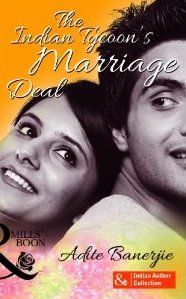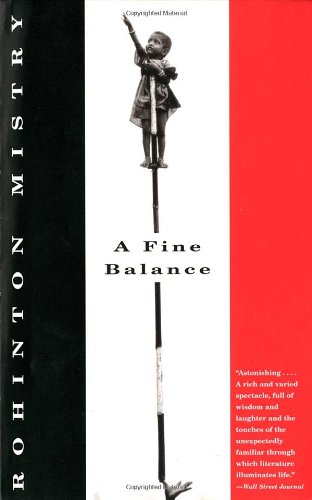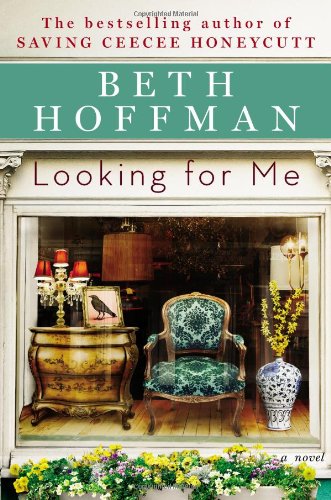Wordless Wednesdays #25
Book Review : The Indian Tycoon’s Marriage Deal by Adite Banerjie
 Title : The Indian Tycoon’s Marriage Deal
Title : The Indian Tycoon’s Marriage Deal
Author : Adite Banerjie
Genre : Romance
Publish Date : September 1st, 2013
Publisher : Harlequin
Source : Author
Rating : 3.5/5
It’s been a really long time since I’ve read Mills & Boons. If you know not what these are, they are romances where the men are standard TDH (Tall Dark Handsome) and the women pretty and feisty. The twain meet. Sparks fly. The End is pre-ordained. You read the book for The How.
As I remember this genre, the women were generally blonde and blue-eyed and the men arrogant and handsome. The one thing they definitely were was NOT Indian. So I looked forward to reading an M&B set in India, in Delhi no less! The guy here is “tall, suave and superstar-handsome” Krish Dev, son of hard-nosed tycoon KD, and heir to a very large business empire. The girl is feisty working-girl, landscaper Maya Shome. Maya is an orphan, with only memories of her loving parents to comfort her. He seeks a way to counter his domineering Dad’s plans, and she seeks revenge. He offers her a deal she can’t refuse, and it looks like they both might get what they want . . .
The plot works nicely – I can quite see this as a Bollywood film – and the book keeps chugging away with bits of intrigue mingled with romantic encounters of the desi kind. Krish is an impressive hero and Maya an equally interesting heroine. He calls her “Jaaneman” and blows hot and cold by turns. Lovely Maya must work very hard to resist the charmer. As befits an Indian setting, there are the parental units and their emotional pull, the villain, the vamp and the long-suffering mother. There are also descriptions of tycoon-ish opulence, desi food, dress and customs.
Banerjie’s writing is smooth. She does descriptions well, and we get a pretty good feel for the characters and the locales. I will say that at the beginning of the book, there is a lot of “telling” (as compared to “showing”) going on as Banerjie races to fill us in on all the back-story, but that was the only negative aspect I could discern. Both Krish and Maya are very like-able characters, and Banerjie gives the pair a searing chemistry. I thought the romance very well done, and the love-making scene fairly tastefully described, given desi sensibilities.
This book was a quick entertaining read. I’d recommend it for a lazy day at the beach, or as a warm read for a dreary winter’s day. Do pick this one up, ladies; it is exactly what the doctor ordered.
Book Review : The Last Clinic by Gary Gusick
[amazon_link id=”B00DACZTX8″ target=”_blank” container=”” container_class=”” ] [/amazon_link]Title : The Last Clinic
[/amazon_link]Title : The Last Clinic
Author : Gary Gusick
Genre : Mystery
Publish Date : November 18th, 2013
Publisher : Alibi (Random House)
Source : Netgalley/Publisher
Rating 4.2/5
Reverend Jimmy Aldridge is a regular protestor outside the local women’s health clinic in the small town of Jackson, Missisipi. One day, someone shoots him dead. There are many people who could have wanted the puritanical, conservative preacher dead, but suspicion rests mostly on the gynecologist at the Jackson Women’s Health Clinic, a Dr. Stephen Nicoletti, owing to his differences with the Reverend over the issue of abortion. Sheriff Shelby Mitchell, under intense pressure to find the killer, calls on Detective Darla Cavannah to abandon her leave of absence, “a verbal agreement” he reminds her, and take up the case. She is to be partnered with Elvis impersonator, Mayoral nephew and highly incompetent Detective Tommy Reylander.
Sheriff Mitchell in his attempt to pave the road to re-election, promises to assist the “hate-crimes specialist”, a title he confers on Darla, and which she demurs from. She also has some help from Uther Pendragon Johnson, an intern at FUSION, a combined-forces IT center. Detective Cavannah, who has in the past year lost her spouse, shelves her own bag of troubles for another day and gets on the trail. Nothing can prepare her for the unholy evil she will find.
Gusick builds his novel around a most controversial topic : Pro-Choice vs. Pro-Life. He places his story in the southern town of Jackson, Missisipi where emotions run high and “modern” views aren’t taken to kindly. The plot of the story feels home-grown and apt, given that this is such a hot-button topic.
I was drawn in by Gusick’s sympathetic portrayal of Detective Cavannah. Given that the book is written in third person, from Darla’s point of view, Gusick does a pretty good job of writing from the female point of view. Darla comes across as a gutsy mature individual, with a cool head and lots of common sense. Having suffered her own losses she feels for the underdog, and does the right thing. Detective Reylander, by comparison, is a bigoted braggart with his Elvis impersonations and shoddy police-work. The Sheriff tries to keep peace, but must err on Darla’s side, since she generally seems to more reasonable. Gusick has many other more colorful characters, from the preacher himself to Darla’s feisty huntress room-mate Kendall.
Darla liked this part of Kendall, the part with the temper that said exactly what was on her mind. It was welcome relief from the standard-issue northeast Jackson women, who batted their eyes and smiled and squeaked and carried on like they’d spent every day of their childhood playing with puppies.
“I thought you sided with the right-to-life people,” said Darla.
“I go back and forth. Thank God I was never personally faced with that kind of a decision. What I don’t believe in is treating women the way Jimmy Aldridge did.”
I liked the fact that Gusick’s characters feel real, some bad, some good, some in-between. Darla’s adopted hometown is inwardly drawn; mostly everyone knows everyone and their past history. It seems like nothing is secret; the dirty laundry is out to see, or speculated upon. The locale is perfect for a mystery – on the surface this is a town of gentlefolk led by a bible-thumping preacher, but underneath that veneer is chaos.
The Last Clinic was a quick read, because it was so hard to put down. It was very well-paced and had action and good solid detective work interspersed with some very interesting descriptions of the seamier side of human nature. The story was strewn with red-herrings and suggestions of real clues, all drawn out superbly to make this is an engrossing and unpredictable who-dun-it. I thought that the romance angle could have been downplayed; there was enough to this book that we didn’t actually need that distraction.
This is a great read for mystery lovers – highly recommended.
Book Review : Fortune’s Pawn by Rachel Bach
[amazon_link id=”0316221112″ target=”_blank” container=”” container_class=”” ] [/amazon_link]Title : Fortune’s Pawn (Paradox #1)
[/amazon_link]Title : Fortune’s Pawn (Paradox #1)
Author : Rachel Aaron
Genre : Sci-Fi
Publisher : Orbit Books
Publish Date : November 5th 2013
Pages : 368
Source : Netgalley/Publisher ARC
Rating : 4.2/5
The main protagonist in this book is Paradoxian mercenary Devianna Morris. Devi is no ordinary merc – she’s one of the best and her ultimate aim is to become a Devastator in the service of the divine King of Paradox. Devastators are sparingly chosen but when Devi hears that a stint aboard Captain Brian Caldswell’s ship Glorious Fool will positively help her resume and her career, she interviews for and gets the job of security onboard the Fool.
On board the ship, Devi meets the rest of the varied crew : the navigator Basil, who’s an aeon (an alien bird), the xith’cal (cannibalistic alien lizard) doctor Hyrek, Mabel the ship’s engineer, systems analyst Nova, fellow mercenary Cotter, cook Rupert and Ren the Captain’s daughter. Captain Caldswell has a reputation for getting into dangerous skirmishes and his old, war ravaged ship shows the signs of battle. Devi’s job for her contracted year aboard the Fool is to ensure security of the ship, it’s passengers, crew and cargo. Devi doesn’t know it yet, but it’s going to be a long, hard year.
Now, I’ve read sci-fi with a female protagonist before. Still, apart from Catherine of T.C.McCarthy’s Exogene (and she’s a genetically modified war machine, so not quite the same thing) I haven’t read a character quite like Devi’s. There are many sci-fi books with adrenalin-loving, gun-toting heroes but almost no sci-fi novels of any heft featuring a female equivalent. So Devi is kinda unique. She’s super aggressive, in-your-face, loves a good fight and names her guns (Sasha and Mia) and her Paradoxian armored suit (the Lady Gray) like they were her babies. She talks a big game but has the substance to back it up. And she doesn’t mince words; she’s a straight talking gal and says it like it is. I loved her character!
The hunk of steel fell with a squeal behind me, locking off the bridge and the rest of the ship from the lounge and the cargo bay. The three-inch-thick door wouldn’t hold back a really determined xith’cal with time on his side, but it would stop runners and stray blasts. Of course, I didn’t intend to let so much as a blood spatter get past me tonight. I was ready to fight; no more tests, no more waiting. This was what I was on this ship to do, and I meant to show Caldswell exactly what kind of merc he’d hired.
Fortune’s Pawn is narrated in the first person from Devi’s point of view. She spends quite a bit of time describing the Lady Gray – what it’s composed of, how it works and the expense and trouble Devi has taken to get it. She also describes Sasha and Mia lovingly, “my girls were no slouches”. There’s considerable space given to describing invasions and fights in great detail. Manouvres, strategies, fighting skills, weaponry and armor all feature heavily in this book, as does romance.
Bach builds up an interesting universe for this novel. This is of course many many years in the future, and in this world there are other life-forms besides the humans, namely the aeons, the xith’cal and the lelgis; Devi has an opportunity to encounter all of them. Besides the fact that I really liked the lead character I also appreciated the way the author narrates her story, divulging details along the way and building up her characters, and still keeps the momentum of a fast-moving space opera. There’s action and fights galore but there are also the quiet moments. Bach has managed to beautifully wedge together sci-fi and romance in the same interesting novel.
This is the first book of the Paradox series. The sequel “Honor’s Knight” comes out February 2014; I’m not sure I can wait that long.
Book Review : The Thinking Woman’s Guide to Real Magic by Emily Croy Barker
[amazon_link id=”0670023663″ target=”_blank” container=”” container_class=”” ] [/amazon_link]Title : The Thinking woman’s Guide to Real Magic
[/amazon_link]Title : The Thinking woman’s Guide to Real Magic
Author : Emily Croy Barker
Genre : Fantasy
Publisher : Pamela Dorman Books
Publish Date : August 1st 2013
Pages : 563
Source : Publisher
Rating : 3/5
Nora Fischer is working on her dissertation for graduate school. Life isn’t going well; Nora’s chosen topic is all researched-out, her accomplished advisor is disdainful of her efforts, and Nora’s boyfriend has let her know that he is marrying someone else. Out attending another wedding, Nora falls through a magical portal and is transported to the most heavenly place. She meets lovely, kind people, is turned from drab to fab herself, and her life is an endless succession of the most delectable parties.
After a while, she realizes, with the help of the magician Arundiel, that her luxurious life is a sham, propped up by strong magical spells. She herself is entranced by the Faitoren and their powerful evil queen Ilissa. The real world here in magic-land is realistically drab, low-tech, sans indoor plumbing, strongly patriarchal and not very open to the idea of male-female equality. Shorn of her finery and the spells that made her breath-takingly beautiful, Nora falls into the role of castle help at Lord Arundiel’s castle – she weeds the garden, mucks out the chicken house, cooks. By and by, gruff Arundiel helps her learn rudimentary magic. However even he, powerful magician that he is, may not be able to stop the Faitoren as they make another attempt to regain Nora.
I’m not one for magic; dragons/other fantastical creatures are not my thing. I don’t read fantasy/paranormal books unless there is some other draw to them. When I looked at this book though – a rational, modern woman of this world encounters magic – it seemed like the perfect melding of the fantastical with the practical. I was hoping for a new, refreshing (somewhat rational) female point of view on the fantastic but this isn’t the book the title hints at. Nora is not quite the “thinking” woman, and for a grad student, she does not seem to question or analyze very much. She isn’t taking the specter of magic head on; rather we lapse into the age-old familiar tropes – the older, rakish, rude man-savior and the young innocent girl who has a thing for him. Arundiel spends his day in his “tower” while Nora cooks and cleans – so much for the grad degree.
Taken purely from the fantasy view-point (and paying no heed to the title) this book is a decent read. The author creates her magic world and it’s people with care. There is magic and wizardry and there is a distinction between them. There are also court politics and kingly battles. I liked Nora, even though she is not the strong heroine that I imagined that she would be. She does have times where her independent spirit comes roaring back, and she does have gumption. Arundiel is a good guy, although you have to guess at his heart of gold, so gruff and rude is he to Nora. Ilissa was a lovely fanciful creation, all old-world glam mixed in with evil – nicely done. Also while I’m a little disturbed 🙂 at the fact that the romantic interest has to be a doddering old codger, I did like the slow, organic development of the romance. There were some interesting asides too, like the one dealing with how inequality of the genders is built into the language itself, and the interesting, humorous use of poetry to feed an “ice-demon”.
On the negative side I did find Barker’s characters inconsistent; variations in attitude and demeanor seemed thought up on a whim, without a strong basis to them. This is a weighty tome and is the first of a series; it actually ends with a lead-in for the sequel. I found the book pretty long and needing editing; that might have sped up the laggardly pace a bit. I’m a little disappointed that this is not the tale of the bold new woman turning magic on it’s head, but it might be the thing for lovers of the fantasy genre.
Audiobook Review : A Fine Balance by Rohinton Mistry
[amazon_link id=”140003065X” target=”_blank” container=”” container_class=”” ] [/amazon_link]Title : A Fine Balance
[/amazon_link]Title : A Fine Balance
Author : Rohinton Mistry
Narrator : John Lee
Genre : Society/Culture
Listening Length : 24 hours and 29 minutes
Pages : 603
Rating : 5/5
“A Fine Balance” is quite a tome. I realized this when I tried to download it from the local library to my Android phone, via the Overdrive app. The MP3 version of the audio-book took forever to download – it has 20 parts, and each part is roughly an hour. The local library lets you borrow the book for two weeks at a time, after which the title expires and is unavailable. If you are like me and listen to audiobooks only on the work commute, and not every day at that, it can take up to 4 re-checkouts and re-downloads before you are able to finish listening to this majestic masterpiece.
A Fine Balance is about conditions in India in the mid 1970s. Indira Gandhi is the prime minister, although she is never actually named, and she has invoked the Emergency. The 1970s are (amazingly and despairingly) similar to current times in that there is widespread corruption, and the little people have it bad. To top it all, the government has invoked stricter rules to clean up the slums/poorer sections of the city and the family planning project is underway. The novel is set in a bustling, populous unnamed seaside city (probably Bombay, now Mumbai – indeed, renaming cities is the one thing the Indian political class seems to do well).
The novel has 4 main characters : Dina Dalal, a Parsi widow who must fend for herself because she does not wish to go begging to her overbearing, ever critical elder brother Nusswan, her paying-guest Maneck Kohlah who is attending the college in the city and away from home, and two tailors Ishvar and Omprakash Darji, who have come to Bombay from their little town to seek out a better life. Mistry writes in exquisite detail about these four characters and other peripheral characters like Ibrahim, Dina’s landlord’s rent-collector, or Dukhi, Om’s father, an untouchable who has decided to flout the rigidly held caste restraints to allow his sons to pursue other professions.
Via his characters Mistry touches upon various social ills – the corruption, the breakdown of law and order, the caste system which is still prevalent in orthodox India, the hypocrisy, the decaying justice system, and the poor status of women in society. To those unfamiliar with India, and the plight of the middle and lower classes, this book might appear to be a compendium of bleakness, of desolate and stark anecdotes. To me, and I must admit I am (sadly) somewhat inured to descriptions of India’s poverty and squalor, A Fine Balance was about living life with dignity and courage even when that life was hard and miserable. The title itself comes from the words of a peripheral character Maneck meets on a train journey, and the words refer to the fine balance between hope and despair.
This is a long and leisurely novel, and Mistry takes his time describing the minutiae of his character’s lives. Pages and pages of detail describe dress, manner, personality, living conditions, facial features, habits, customs, locales and ideas and much, much more. No detail is too paltry to be overlooked. This results in creating a very clear picture of the people in this book; it is like we are there with the characters, face to face. We get to know them really well and become strongly invested in their lives. You might think that with so much detail, the plot might meander or get swept away in pedantic details, but Mistry is a magician with words. He is skilled at creating worlds where we wander in and are content to look around and stay and listen and absorb all the intricacies which compose daily life, bleak though that life might be.
The book is narrated by John Lee who reads well, and gives nuance and depth to the characters. The problem I found with his reading was his Anglicized pronunciation of Indian vernacular like “jhoppadpatti”, or “Om” which he pronounced as rhyming with “gone” instead of “gore”- makes me wonder if they couldn’t have gotten an Indian consultant on the reading. Also while trying to sound like an Indian might, Lee tends to flatten his sounds a little more than necessary. This bothered me initially, but after a few chapters I got used to it, and it did not detract from the pleasure of this book after all. If you think that the mispronunciation will bother you, you might try and get hold of the abridged audiobook (6 hours) read by Madhur Jaffrey.
This is a gorgeous book and a must read/listen.
Book Review : The Case of the Love Commandos by Tarquin Hall
[amazon_link id=”1451613261″ target=”_blank” container=”” container_class=”” ] [/amazon_link]Title : The Case of the Love Commandos
[/amazon_link]Title : The Case of the Love Commandos
Author : Tarquin Hall
Genre : Mystery
Publisher : Simon & Schuster
Publish Date : September 8th 2013
Pages : 320
Source : Netgalley/Publisher
Rating : 4/5
This is the second book of the Vish Puri series that I have read; I’ve also reviewed “The Case of the Missing Servant”. The central character Vish Puri, is a portly Punjabi private investigator based in New Delhi. In this book he tackles the case of two star-crossed lovers. His associate Facecream is helping an outfit called the Love Commandos in assisting young people who want to marry out-of-caste. In orthodox India, this is a big no-no, so resistance is expected. However when Ram Sunder, a Dalit man, and Tulsi, daughter of Thakur Vishnu Mishra, decide to marry, Tulsi’s family takes serious umbrage; Ram is kidnapped and his mother is killed. Facecream calls Puri for help and he, enroute to the Vaishno Devi shrine, sidetracks his way to Agra.
There is also a sub-lot involving Vish’s Mummyji and her suspicions about Duggal, a man who is also making the trek to the Vaishno Devi shrine. Mummyji thinks his behavior is suspicious following a tip-off by Vish, but her attempts to alert the local police fall on deaf ears and it is up to Mummyji to actually do something about it.
Every time I read Tarquin Hall I am amazed at how adroitly he captures the Indian milieu in his writing; it suggests a deep familiarity and strong affection for the place. Not only are his descriptions of the Punjabi-ness of the Delhi-ite folk spot on, even his portrayal of Puri’s relationship with the rest of his family rings true – a little overdone for comical effect, but true. Puri is a food-loving Punjabi man. And he has a domineering Mummy. Mummyji calls him Chubby and won’t heed Vish’s advice. His wife Rumpi will though so he calls her instead when he has instructions to be followed to a T. Then there is Elizabeth Rani, Puri’s assistant (he calls her “Madam Rani”), who has the office running while Puri gallivants around on his sleuthing adventures. And then there is Facecream, Tubelight, Handbrake, DoorStop and other creatively named operatives employed by Puri.
Hall’s characters speak in true colloquial, Indian English, like “Kindly don’t do time-waste”. Grammatically incorrect questions are (hilariously) answered with stubs of other grammatically incorrect questions; I’m laughing out loud reading this stuff. Simple statements are also questions:
Puri stepped into the corridor and dialed his wife’s number.
“Chubby, that’s you? Hello? You’re on another train, is it?”
“Mummy-ji, why are you answering Rumpi’s phone?”
“Just she’s currently indisposed. Something is the matter? Some tension is there?”
“No tension, Mummy-ji,” Puri lied, feeling his stress levels steadily rising. “Just I–”
“One moment hold. She’s reverted.”
Puri is good-naturedly conceited about his abilities, insisting that nothing escapes his notice and that his radar “is working twenty-four hours a day, three hundred sixty-five days a year, only.” His egotistical nature reminds me of Hercule Poirot’s inflated sense of self. Much like Poirot, underneath all that pomposity, Puri genuinely wants to put matters right, whether it be catching the perpetrators of a jewelry heist or reuniting a couple in love. That is what makes him such a likeable character. Inspite of his florid, robust nature, Puri, possess a surprisingly insightful view of the world around him. He wears his safari suits with a swagger, but it is all good.
In this book, Hall, via Puri, expounds on the caste system, the corruption of the Indian government, the Great Indian Wedding and the state of Indian traffic, among other things. With his colorful characters, vivid descriptions and rather apt-sounding dialogs Hall gives us a great look-see into modern Indian society.
The ramifications of colonialism always proved disastrous. Indeed, Uttar Pradesh, one of India’s most lawless states, was yet to recover from the legacy of the Britishers in the detective’s opinion. The British Empire had destroyed the fabric of the indigenous economy as well as the old nawab culture, which, for all it’s faults, had produced an educated intelligentsia. Since independence, the vacuum had been filled by something far less sophisticated. Uttar Pradesh’s modern rulers possessed none of the intellectual acumen of the likes of Mahatma Gandhi, Jawaharlal Nehru, or Dr. B. R. Ambedkar, the Dalit leader responsible for writing the Indian constitution. Today’s politicians were crude men and women guilty of everything from smuggling to rape and murder. Their route to power was not competence or judiciousness, but exploiting caste vote banks.
The Case of the Love Commandos is a well-plotted, fast-moving mystery which engages us via it’s smartly-etched characters, it’s in-built humor and plenty of twists-and-turns. Another feather in Hall’s cap, this one is highly recommended.
Wordless Wednesdays #24
Book Review : Looking for Me by Beth Hoffman
[amazon_link id=”0670025836″ target=”_blank” container=”” container_class=”” ] [/amazon_link]Title : Looking for Me
[/amazon_link]Title : Looking for Me
Author : Beth Hoffman
Genre : Chick-lit, Women’s Fiction
Publisher : Pamela Dorman Books
Pages : 354
Source : Publisher
Rating : 3/5
Country girl Teddi Overman has a penchant for antiques. When her mother wants her to take up a “dependable” profession instead, Teddi leaves home for Charleston, with nothing more than hope and the address of a potential employer. She builds an independent life for herself in Charleston returning home in fits and spurts to meet family. While Teddi is in Charleston her younger brother Josh, whom she is very attached to, goes missing, and she is forever haunted by this, hoping in her heart of hearts that he is alive and will be found someday.
That’s pretty much the summary of the book. There is no real villain in this story, although there are numerous challenges in Teddi’s life, from her refusal to follow the straight and narrow path laid out before her to dealing with the death and disappearance of family. This novel can be described as a “coming-to-terms” or “finding closure” book. The author gives us a good look-see into Southern life, and a feel for Teddi’s life at home with her family and in Charleston pursuing her heart’s desire. Teddi does seem to have a lot of gumption and guts. She is also a good decent person, caring for family and friends.
The author’s descriptions are well done, but I had problems getting into the story. The book has no resounding climax, just a series of gentle knocks. When you think about it, Teddi has not led an easy life – she’s had to fight for everything she’s got, establish herself and make new connections and friends everywhere she goes, but the book does not describe her challenges in enough visceral detail for the reader to actually feel for her. I felt that the entire narration was in an emotionally detached tone, and the problems either glossed over or made short shrift of.
There are times when Teddi is down and despairing but we get to hear of them through a gauzy curtain of Southern gentility, which essentially trivializes them, and hides from us important details of her character. Since this book is told in first person, from Teddi’s point of view, the emotionally detached tone might have been what the author was going for – Teddi might indeed be a stoic, pragmatic sort of person who does not tell of her troubles. But this “stoicism” leaves the readers very little to chew on. For readers who are from the South and have met such women (very Steel Magnolias minus the emotion) this might ring true, but for the rest of us, it left much to be desired.
This book is easy chick-lit reading, and might be a good pick for a day at the beach.
Book Review : Shaman by Kim Stanley Robinson
[amazon_link id=”0316098078″ target=”_blank” container=”” container_class=”” ] [/amazon_link]Title : Shaman
[/amazon_link]Title : Shaman
Author : Kim Stanley Robinson
Genre : Sci-fi/Anthropological
Publisher : Orbit
Publish date : September 3, 2013
Pages : 464
Source : Publisher/Netgalley
Rating : 3.5/5
Loon is a young adolescent of the Wolf tribe in Ice Age times. We meet him as a young orphan, being brought up by the pack’s Shaman Thorn and by the medicine woman Heather. Loon is apprenticed as a young Shaman although he isn’t sure he wants to be one. Shaman is about Loon, and takes us through his life, a little by little, and can be described to be a book of the “coming-of-age” genre.
Shaman is strong on detail, and presents to us Ice age life as our ancestors lived it. The clothes, food, lifestyle, nomadic habits, society, social rituals and status of women and men are all described from Loon’s point-of-view, and narrated by the “Third Wind” a force which apparently helps people survive when they are at the end of their rope. The narrative progresses season by season; the spring is when the pack catches and stores food to last through the harsh and possibly lean winter, where one might not be able to find any meat or any edible vegetation.
Loon is a likeable enough character, so it is easy to be invested in his life story. The description of Loon’s adventures is engrossing, like the “wander” he is forced into going on, naked and defenseless for a fortnight, without the protective cocoon of his pack members. His pack-members are like regular people – some good, some bad, some mean and some bossy. The story flows naturally and organically, and makes for smooth reading.
Shaman reads like an exquisitely described, interesting history lesson, garbed as a work of fiction. The book is low on plot and there isn’t much suspense, so I’m not as thrilled with it as I though I would have been. The language of the book is simple and blunt, shorn of sophistication as we might imagine prehistoric man’s to be, very apt for the book.
I haven’t read Robinson before so can’t make a comparison with his earlier novels. Shaman may not be your adventure filled sci-fi novel, since it is more philosophical and less action-filled than hard sci-fi tends to be, but it is a good read.



